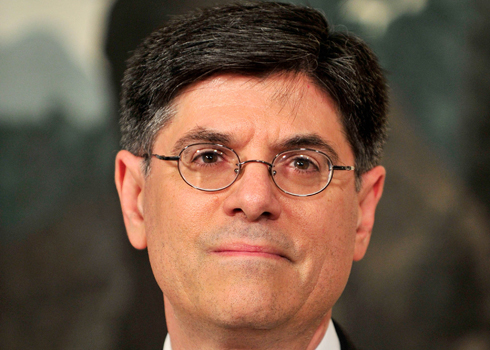White House Office of Management and Budget Director Jack Lew on Monday outlined plans to pay for President Obama’s new jobs bill largely by increasing taxes on the wealthiest Americans and closing tax loopholes for businesses.
Most of the new funds, Lew said, would be attained by limiting itemized deductions for individuals making more than $200,000 a year and families making more than $250,000, a plan President Obama has tried to push since his campaign days. Taking these steps would raise roughly $400 billion over 10 years, Lew said.
“We have choices to make. In order to invest in jobs and growth, we’re going to have to pay for it,” Lew said. “We think the American people will think this is the right package.”
The administration also include a long-time policy goal of taxing the income investment fund managers make, known as carried interest, as regular income instead of as capital gains, which has a lower 15 percent tax rate. So far, Wall Street has strongly resisted any attempt to increase the rate on so-called carried interest. That change alone, would provide an infusion of $18 billion in revenue, according to administration officials.
The elimination of a tax break for the oil and gas industry would raise another $40 billion, and another $3 billion would come from changing the way corporate jets depreciate. Combined with a few other smaller revenue raises, Lew said the total measures proposed by the administration would bring in $467 billion, with some “wiggle room” — $20 billion more than the cost of Obama’s jobs bill, to ensure there’s room to account for Congress’ bean counters score the total a bit differently.
The President plans to send the actual legislative language of his jobs bill to Congress later Monday and will continue selling the jobs package to the American people with a trip to Columbus, Ohio, on Tuesday. A week from today Obama will detail his recommendations to the deficit supercommittee, the panel of 12 members charged with cutting $1.5 trillion over 10 years.
Obama has said he will urge the panel to “over-achieve” or in D.C. parlance “go big,” and slash $3 trillion, instead of the original goal of the $1.5 trillion, including enough to pay for the additional spending and tax relief in the jobs package.
House Majority Leader Eric Cantor (R-VA) immediately shot down the idea of paying for the jobs bill mainly through tax increases, and Speaker John Boehner (R-OH) called the White House revenue raisers a “rerun pay-for.”
“It would be fair to say this tax increase on job creators is the kind of proposal both parties have opposed in the past,” said Boehner spokesman Michael Steel. “We remain eager to work together on ways to support job growth, but this proposal doesn’t appear to have been offered in that bipartisan spirit.”
Get the day’s best political analysis, news and reporting from the TPM team delivered to your inbox every day with DayBreaker. Sign up here, it takes just a few seconds.









